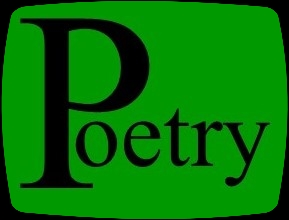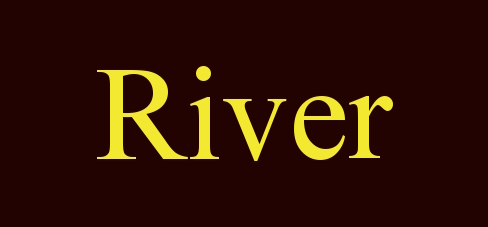|
|
|
|
|

|

|
|
|
|
|
|

|
|
|
Primitive Art reflects reality at the center of a perception of the world as a spiritual quest. Modernity crawling from the towers of industrialization into an avalanche of new information about existence, begs the question of meaning. The question of self worth on a speeding missile into a vast and expanding universe. Zen Process is a multidisciplinary perspective mapping individuality and being. What Is Enlightenment? Kant answers the question quite succinctly in the first sentence of the essay: “Enlightenment is man’s emergence from his self-incurred immaturity.” He argues that the immaturity is self-inflicted not from a lack of understanding, but from the lack of courage to use one’s reason, intellect, and wisdom without the guidance of another. Our fear of thinking for ourselves. He exclaims that the motto of enlightenment is “Sapere aude”! – Dare to be wise! The German word Unmündigkeit means not having attained age of majority or legal adulthood. "Unmündig" also means "dependent" or "unfree", and another translation is "tutelage" or "nonage" (the condition of "not [being] of age"). Kant, whose moral philosophy is centred around the concept of autonomy, here distinguishes between a person who is intellectually autonomous and one who keeps him/herself in an intellectually heteronymous, i.e. dependent and immature status. Kant understands the majority of people to be content to follow the guiding institutions of society, such as the Church and the Monarchy, and unable to throw off the yoke of their immaturity due to a lack of resolution to be autonomous. It is difficult for individuals to work their way out of this immature, cowardly life because we are so uncomfortable with the idea of thinking for ourselves. Kant says that even if we did throw off the spoon-fed dogma and formulas we have absorbed, we would still be stuck, because we have never “cultivated our minds.” The key to throwing off these chains of mental immaturity is reason. There is hope that the entire public could become a force of free thinking individuals if they are free to do so. Why? There will always be a few people, even among the institutional "guardians", who think for themselves. They will help the rest of us to “cultivate our minds.” Kant shows himself a man of his times when he observes that “a revolution may well put an end to autocratic despotism . . . or power-seeking oppression, but it will never produce a true reform in ways of thinking.” The recently completed American Revolution had made a great impression in Europe; Kant cautions that new prejudice will replace the old and become a new leash to control the “great unthinking masses.” Private use of reason is doing something because we have to. For example: rational workers in a specific occupation use private reasoning to complete tasks. Public use of reason is doing something on the public sphere because we choose to improve our private function. Although someone may find their job or function disagreeable, the task must be completed for society to flow consistently. They may, however, use public reasoning in order to complain about the function in the public sphere. A military officer is required to obey the orders of his superiors. A clergyman is required to teach the doctrines of the church that employs him. But the responsibilities of their office do not preclude them from publicly voicing any opinions that may conflict with those responsibilities. We expect office holders to stay in character at all times, but Kant gives examples. A clergyman is not free to make use of his reason in the execution of his duties, but as “a scholar addressing the real public through his writings, the clergyman making public use of his reason enjoys unlimited freedom to use his own reason and to speak in his own person.” [edit] Kant and religion Staying on the religious theme, Kant asks if a religious synod or presbytery should be entitled to “commit itself by oath to a certain unalterable set of doctrines”? He answers that a contract like this prevents “all further enlightenment of mankind forever.” It is impossible and immoral that the people of one generation could restrict the thoughts of the next generation, to prevent the extension and correction of previous knowledge, and stop all future progress. Based on this, later generations are not bound by the oaths of preceding generations. With freedom, each citizen, especially the clergy, could provide public comment until public insight and public opinion changes the religious institution. But Kant says that it is impossible to agree, “even for a single lifetime,” to a permanent religious constitution that doesn’t allow public comment and criticism. If one was to renounce enlightenment for later generations, one would be trampling on the “sacred rights of mankind.” Neither an individual citizen nor a monarch has the right to constrict historical development. Kant further explains why he has been emphasizing the religious aspect, religious immaturity, "is the most pernicious and dishonourable variety of all.” If Enlightenment is man's emergence from his ‘self incurred immaturity’ and the guiding forces of society, then simply put: the church is a political force which constrains public behaviour through the use of doctrine. By defining doctrines and making them politically binding, the Church can control the growth of reason, therefore, publicly it is in your own self interest not to assent to a set of beliefs which hinder the development of your reason. It is in man's interest to surpass those that prevent him from using his own reason. Zen Process is an attitude for gathering information with respect to reconciling linear and spherical architecture. The Role Of The Artist In Complex Systems, Chaos And Understanding Apparent chaotic behavior is observed in natural systems, such as the weather. Explanation have been sought through mathematical models. Mostly recurrence plots and Poincaré maps. However as emerging information surfaces on the phenomenology within the weather matrix, it becomes clear that the chaotic behavior is a perceptual malaise. Spherical Thinking is a necessity in dealing with a comprehensive understanding of weather. So what appears chaotic at one point on the sphere, is understandable when observing the spherical totality. If we can not grasp a spherical totality, we are stuck with the methodologies of divining a misunderstood order. The hermeneutic circle refers to the idea that one's understanding of the text as a whole is established by reference to the individual parts and one's understanding of each individual part by reference to the whole. It stresses that the meaning of a text must be found within its cultural, historical, and literary context. Similarly our migration to a spherical model intuits a flood of information to be referenced and sorted. When considering the weather of humanity, a concept of "a living unified whole" rather than "theoretical models" make understanding of multiple cultural context and interpretations necessary to gain greater insights. With Zen Process we look to the resolution of the phenomenal dualism of ego and non-ego. The ego is both intellectual, and organic. There is no "pure mind" or "pure body." There is only a balance where ego finds a synthesis of all possibilities and self. In cognition being is the object and in volition it is the purpose of thought. The object of thought is directed into ourselves. The purpose of thought is directed out into the world. Cognition and volition are both functions of thought. Self-awareness is the third function of thought. Knowledge is bounded by experience. The idea of knowledge or scientific thought as distinguished from an introspective form of thought such as aesthetics and religion is similar to chaotic behavior observed in weather. From a spherical overview, all thinkers are in the same form. All knowledge takes the form of the concept which is usually referring to the meaning of a linguistic expression or an idea. A concept is therefore a semantic unit in contrast seeking resolution of the phenomenal dualism. This semantic unit represents "understood." It also approaches a chaos of knowledge in particular formal concept analysis, and associated sciences. It is also described in the cultural and historical sciences "concept history" in research programs that are based on historical semantics. Epistemological, philosophy of language, and ontological aspects also deal with variations of a semiotic triangle which denotes a component that mediates between signifier and signified. Looking at self awareness seeking greater organization via hermeneutic circle or a more complex system of Spherical Thinking, the gathering of connectivity between polar opposites brings us to the conclusion that only a larger view, such as a planetary magnetosphere can serve to provide the order of nature we are searching for. Zen Process seeks to finesse a relationship with the harmony which exists around us. Plato, Spinoza, Schelling and Kant contributed to these ideas. |
2017 Glen River Publications, all rights reserved